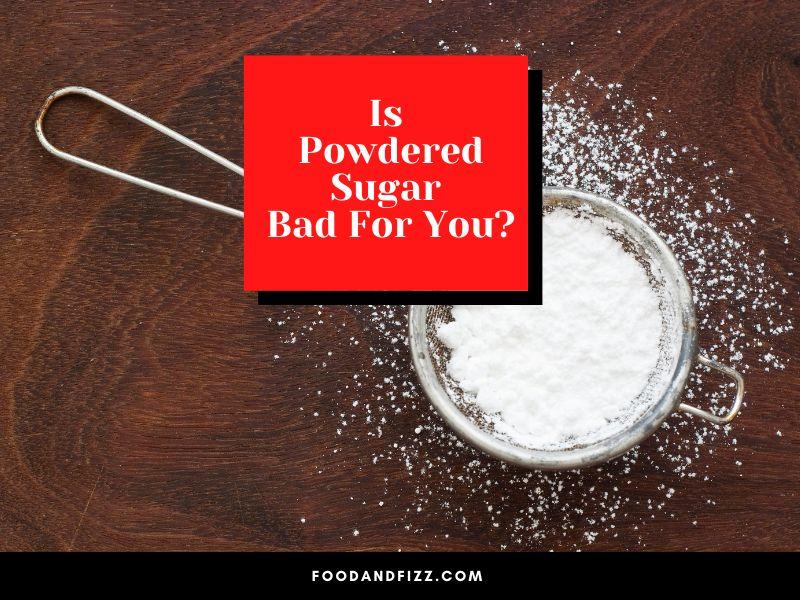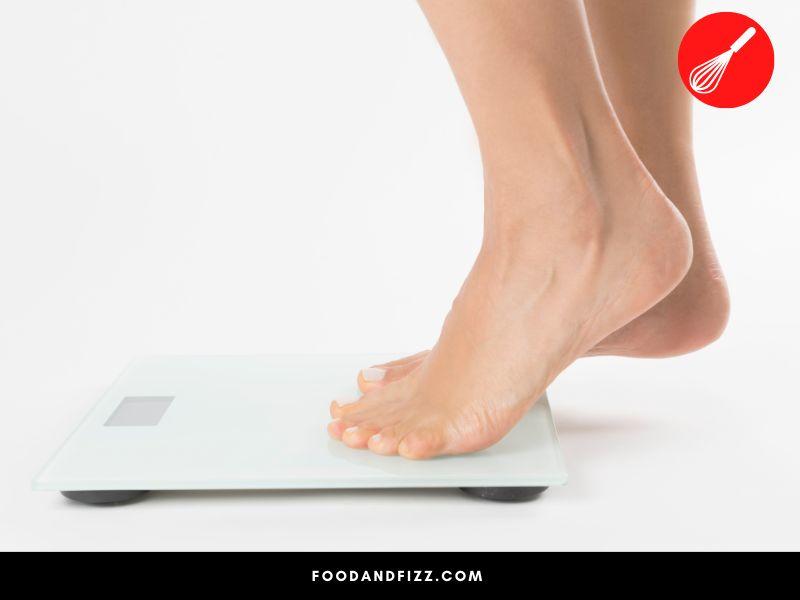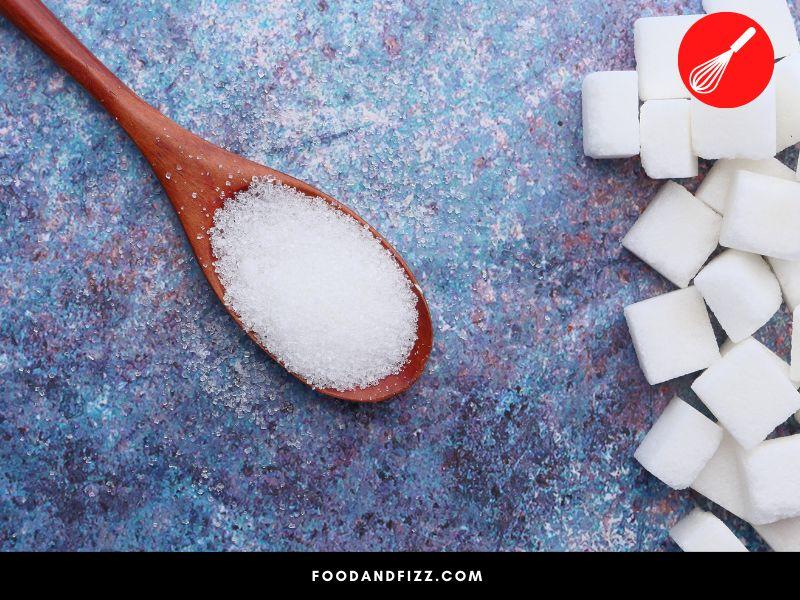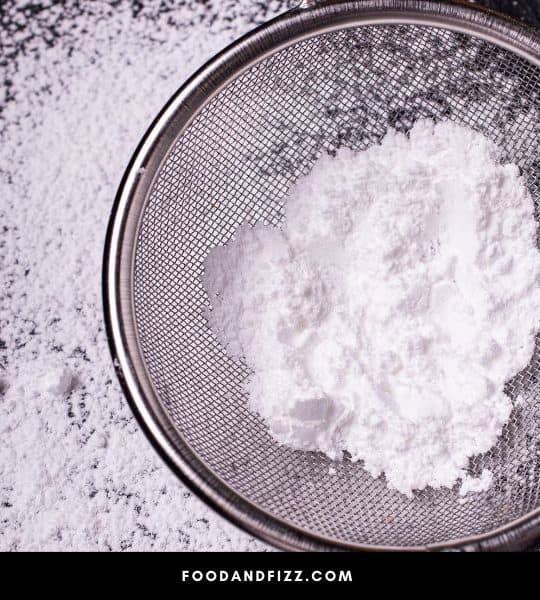Powdered sugar is finely milled granulated or table sugar to form sugary dust particles. In some quarters, it has also been known as confectioners’ sugar or the 10X sugar.
One of the commonly known uses of powdered sugar includes making icing sugars used as key components in various foods.
Is Powdered Sugar Bad For You?
Powdered sugar is not bad for you. However, like all other types of sugar, especially granulated sugar, too much-powdered sugar may have adverse effects on one’s health. Besides, like ordinary sugar, powdered sugar does not have any nutritional value to the body.

What Are the Risks of Consuming Too Much Powdered Sugar?
When it comes to the consumption of powdered sugars, one must do it cautiously. From the various medical reports and journals I have read, too much granulated or powdered sugar is dangerous to one’s health.
I would advise that one uses just the right amount when making a recipe. Here are some common problems that could result from consuming huge quantities of powdered sugar.
1. Weight Gain
Powdered sugars contain fructose molecules that lead to leptin resistance. Leptin is the hormone that tells the body it’s time to stop eating. Thus, if limited, one is likely to overeat. Again, powdered sugar increases visceral fat in the body leading to belly fat.

2. Increased Risk of Heart Diseases
Too much consumption of powdered sugars may lead to high triglyceride, inflammation, raised blood pressure, and obesity. All these conditions are primary causes of heart-related diseases.
3. High Risk of Diabetes Type 2
Presently, global statistics show diabetes prevalence is rising at a tremendous rate. Medical experts have associated this with the excessive consumption of sugars, mainly processed foods.
4. Increased Cancer Risk
Excess amounts of sugars in the body will create a conducive environment for the likely emergence of cancerous cells in the body. This environment may result from inflammations and insulin resistance occasioned by excess sugars.
5. Risk of Depression
Healthy diets are key to good moods. However, a sugary diet isn’t healthy, especially one with excessive sugar content. According to medical researchers, blood sugars will swing neurotransmitter dysregulation, harming mental health.
6. Accelerated Skin Aging Processes
Wrinkle appearances shows aging skin. Too many sugars in the body will cause a reaction between proteins and sugars, leading to advanced glycation end products.
The products are considered to be key contributors to skin aging processes.

7. Energy Drain
Consuming powdered sugars in huge quantities will spike insulin and blood sugar levels, thus causing a rise in energy.
However, the fast rise in energy is unsupported by fat, fiber, or proteins; hence, it falls almost immediately. That leaves a person’s energy drained.
8. Likelihood of a Fatty Liver
A fatty liver will result from too much fructose in the body. Since fructose is broken by the liver and stored as glycogen, the excess glycogen is converted to fats, thus making the liver fatty.
9. Poor Dental Health
Too much sugar will cause cavities. That’s because it will lead to the emergence of bacteria that feeds on these sugars leading to acid release. The presence of these acids will cause tooth demineralization.

10. Accelerated Cognitive Decline
Consuming too much sugar have been known to cause impaired memory, thus leading to the early development of dementia, especially in older peoples.
11. Risk of Gout Emergence
If you ever have an inflammatory condition accompanied by joint pains, that’s probably gout. Gout can result from the consumption of too much sugar into the body.
Most Common Uses of Powdered Sugar
Powdered sugar has several home and industrial uses, especially in the food industry. While I have purchased many powdered sugar foods, I have also bought powdered sugar and used it at home to prepare various recipes.
I have always liked the outcome. However, I’m not a big fan of powdered sugar meals due to the risks mentioned above. Hence I only take them occasionally.
Here are some common uses of powdered sugars.
- Industrial manufacturing of icing sugars,
- It’s used as an additive to muffins, cookies, and cakes,
- Juice and soda sweetening,
- Bulking again in fondants and confections,
- It is used in the stabilization and stiffening of whipped cream and meringues,
- It’s significant in browning reactions,
- It helps boost shelf life by reducing water moisture which may lead to microbial deterioration, and
- It’s used as a tenderizer – a substance that softens meat fibers.

How to Make Icing Sugar at Home
While some people may argue that icing sugar and powdered sugar are the same, that’s not rightly so. Powdered sugar is a component of icing sugar, so they can’t be the same, though closely related.
I have found myself out of icing sugars on several occasions, but I have never been stranded. That’s because I have powdered sugar or even table sugar.
If I have the latter, I always begin by gridding it into tiny particles to create powdered sugar, which I use in making the icing sugar.
Here is a short procedure for making homemade icing sugar using powdered sugar.
Ingredients
- ½ a cup of cornstarch
- ½ a cup of powdered sugar
Procedure
- Step 1: Put a teaspoon of each in a container and stir thoroughly. When sure it’s well mixed, pour it into a clean and dry storage container.
- Step 2: Continue with step one above until all the ingredients are used until they are no more.
- Step 3: Use the right amount of icing sugar on whatever recipe you want, and then close the storage container tightly. Ensure you store the remaining icing sugar in a cool, dry place.
Frequently Asked Questions to Is Powdered Sugar Bad For You
Does Icing Sugar Have Health Complications For One’s Body?
If consumed in the right amount, it does cause any health hazards. However, it’s advisable to avoid powdered sugars for people with sugar-related health conditions such as dental sensitivity, cavities, or diabetes.
Can I Use Powdered Sugar In Place of Granulated Sugar?
Substituting granulated sugar with powdered sugar isn’t so recommendable since they differ in texture. Nevertheless, it may be an excellent choice to replace granulated sugar with powdered sugar in some cases.
Can I Sweeten My Coffee Using Powdered Sugar?
The goal is to have a sweet coffee, so you can. However, the easiest and best way to do it is by mixing the powdered sugar thoroughly with coffee before adding milk or water.
Conclusion About Is Powdered Sugar Bad For You
Powdered sugar is not bad for you but it doesn’t contain any nutritional value either. Too much powedered sugar, however, can have adverse effects on one’s health.

